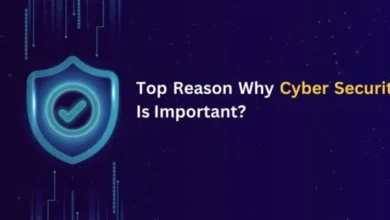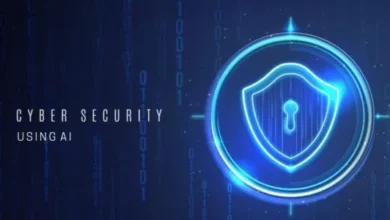Cyber Security – What You Need To Know In 2026?

Cybersecurity has become an essential element where cyber-attacks are drastically increasing. Nowadays, people are experiencing more cyber attacks as the number of people using the internet is drastically increasing. This has improved the demand for people to understand everything about cyber security. Understanding every element of this security is essential to be ready to fight against cyber threats. If you are interested in learning essential details about this security field, you should stay with us.
In this article, we are going to disclose everything about cyber security that you need to know. Here, we will empower you with the most essential aspect of this security. Whether you are a learner looking to explore everything about cybersecurity or a business owner who wants to empower your organization against cyber threats, you should read this article to know every detail about protecting your organization from these threats.
TOC
Table of Contents
What Do you Mean by Cyber Security?
Cybercriminals nowadays use a variety of attacks against victims or organizations. These attacks often involve accessing sensitive data, interfering with business processes, and extorting payment. As mentioned before, cyber security is the method for protecting your electronic systems, data, network, and more from cyber attacks. It also involves a discipline that includes ways to protect services and devices from nefarious attacks like spammers, hackers, and cybercriminals. You can get a respectable degree of defense against assault that looks to gain access to sensitive data that belongs to a company or user through an effective cybersecurity plan. Security precautions are essential to prevent attempts to damage a system or device.
Strong cyber security has multiple layers of protection across devices, networks, programs, and computers. However, strong cyber security does not solely rely on cyber security technology; it also involves people making smart cyber choices.
What are The Benefits of Cyber Security Policy?
Till now, we hope you have understood that cyber security is an excellent weapon to fight against cyber threats and attacks. Besides this, you can enjoy countless benefits by incorporating it within your personal or enterprise network. Let us explore some of the top advantages of this security:
- Protect data
As we mentioned before, cyber security can protect your personal or sensitive data from cybercriminals. With the rise of digital platforms and online transactions, personal information, like transaction details, addresses, and more, is increasingly being targeted by cyber threats. Malware and viruses can access this data and destroy user, employee, and organization privacy.
Cyber security measures use tools like firewalls, encryption, and more to keep your data safe. Good cyber security also includes regular updates and patches to fill any gap in the cyber security infrastructure. You should remember one thing it is an ongoing process. The right cyber security technique ensures that your sensitive data is confidential and secure.
- Decrease financial loses
You can also face financial losses through recovery costs, theft, and operations disruptions by cyber attacks and security breaches. Cyber security can reduce financial impact by removing these occurrences. Cyber security uses encrypted connections to protect your financial data as it travels across the digital world in online transactions or shopping. It also includes fraud detection systems to spot unusual actions within your account. This enhanced protection will reduce financial losses and let you perform online transactions with confidence.
- Improve brand reputation
In today’s world, the news of data breaches spreads instantly across the world. This news can significantly harm your business reputation and break your customer trust. Cyber security can also help you protect your company’s reputation. With the right cyber security technique, you can decrease the unexpected breach. Network security and cloud security are some examples of technology to strengthen access and authentication. These technologies can open new opportunities for future recommendations, ventures, and expansion within an organization.
Good cyber security can help your customers to feel that you take their privacy more seriously. It can also help you stand out from your competitors who might not incorporate these solutions into their systems.
- Assist remote working
Remote work is increasingly becoming popular throughout the world. It might bring convenience for employees, but it significantly puts an organization’s security at a high risk. At the same time, cybersecurity techniques have allowed employees to work safely on a remote network. It has secure ways that your employees can use to connect to your company network from outside the office.
It would be best to implement VPNs to secure sensitive data on a public network. You can also use encrypted communication and secure cloud service to add an extra layer of protection. In addition, you should not forget to secure your devices. Cybersecurity tools and protocols will help you support remote work culture confidentially without doubting security elements.
- Ensure regulatory compliance
Most industries have their security standards. You might face several negative consequences, like hefty fines in case of non-compliance. Cyber security helps you follow these rules effectively because it includes security measures, regular audits, and detailed record-keeping. It also implements a supporting system to help you meet these regulations.
Staying compliant with these standards prevents penalties and boosts your business security framework. It also ensures that you operate your business within standards set by industry regulators. Staying compliant with security regulations will also help you gain the trust of your customers those customers who always care about how their personal data is being used.
What are The 5 Cyber Threats?
Before we understand more elements of cyber security, it would be great to learn about some basic cyber threats. The following are the top cyber threats:
- Malware: All harmful software like viruses, worms, and more that code written to harm a computer system is known as malware. It is used to extract data for nefarious purposes.
- Ransomware: Ransomware steals your data and encrypts it to stop you from accessing it. However, you must pay a ransom to cyber attackers to access your data. Remember, paying it doesn’t guarantee that you will regain access to your information.
- Phishing: Cyber attackers usually send emails or messages incorporating links. These messages appear the same as they have come from an official source. When you click the link into these emails, you will be asked to fill out your details like your account confidential. If you enter the details, the attackers will get these details.
- Password attacks: These aim to get access to a user’s password using a combination of letters, numbers, and characters. Here, the cyber attackers often use automated tools to determine the passwords within a few seconds.
- Insider attack: It is the cyber risk that usually comes from within an organization. It means that a person who has access to organization information poses these attacks.
5 Types of Cyber Security
Similar to cyber threats, there are many types of cyber security with each type tackling different devices or networks. Let’s explore the top types of cyber security:
- Critical infrastructure security
Critical infrastructure security focuses on the measures taken to protect the computer systems your organization relies on to function properly. It includes any protections, safeguards, and other security measures that you use to keep those critical systems protected and running.
- Network Security
Most of the cyber attacks happen within the company network. Therefore, you should incorporate this security to monitor, detect, and restrict cyber threats that want unauthorized access to the network. You can protect the internal network through this security because it secures network infrastructure. Thus, it involves all of the security measures you take to protect a network infrastructure. Configuring firewalls, securing through VPNs, managing access control, or implementing antivirus software are some of the prime examples of this security.
- Application Security
Application security is the concept of finding vulnerabilities from the application development and releasing stage. In this security, you must use software and hardware to protect against external threats in an application’s development stage. It involves the configuration of security settings under a single app to secure them against cyber attacks. It involves checking code testing & review and point frequency security testing. It also means resolving minimal bugs and implementing cybersecurity measures to secure against the bad actors. This will ensure that no application has security flaws that may be exploited. It also helps to strengthen data security in the cloud-native era.
- Mobile security
Nowadays, people are more using mobile devices than computers. These devices often include sensitive corporate data that opens new opportunities for cyber attackers. Thus, Mobile security is also essential. It ensures that all devices are secured against vulnerabilities. This security will help you protect device data and keep it away from cyber criminals. This security applies protection to mobile devices against cyber attacks and prevents unauthorized access from rooting.
- Information security
Last but not least, information security is another significant cybersecurity type on our list. It involves any measure that you take to protect sensitive data, like data stored in a database or file. This security ensures that personally identifiable information (PII) and other sensitive information remain secure.
FAQs
Q1. What knowledge is needed for cybersecurity?
programming languages, operating systems, and network protocols. They must also have strong analytical and problem-solving skills
Q2. What are the basics of cyber security?
Cybersecurity fundamentals center on the CIA Triad: Confidentiality, Integrity, and Availability.
Q3. What are the 5 basic principles of cyber security?
Confidentiality, Integrity, Availability, Authenticity, and Non-repudiation.
Q4. Is cyber security a high salary?
Yes, cybersecurity pays well, often significantly above the national average salary for all occupations. Entry-level roles can start with competitive salaries.
Q5. What does CISA stand for?
CISA can stand for two different things: the Cybersecurity and Infrastructure Security Agency.
Conclusion
With the increase in cyber attacks, cyber security has become an essential thing for any person and organization. It protects systems and devices from harmful actors, including malware. With the right technique, you can effectively protect your organization from these attacks.


